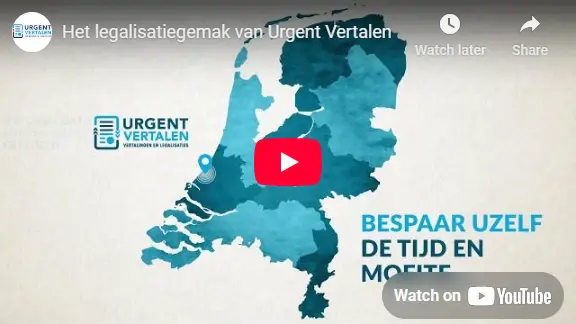Legalize your document in just a few steps
In which country do you want to use your document?
Click on the country of your choice below and follow the steps.
A
B
C
D
E
F
G
H
I
J
K
L
M
N
O
P
Q
R
S
T
U
V
W
Z
These are the legalization steps for Afghanistan
Start
Stap 1
Has your document been swornly translated?
Your documentation must be translated by a sworn translator and provided with a stamp, signature and declaration.
Do you have a sworn translated document? Then go to step 2.
No certified translated document yet? Read more here.
Legalization by the Court
If the certified translation is intended for use outside the Netherlands, the certified translation may first need to be legalized. After legalizing the certified translation, it is an officially recognized document, ready for use abroad. The procedure for legalizing a certified translation varies per country, changes regularly and is often very complicated. It is therefore important to be well informed about the steps required for the country of your destination.
The signature of the sworn translator will first have to be recognized by the Court. This is called an Apostille. Is the country of your destination a member of the national Apostille treaty? Then placing an Apostille is often enough to be able to use the sworn translation officially in the country in question.
Step 2
Step 3
Legalization by the Ministry of Foreign Affairs
Is placing an apostille not sufficient for the country of your destination? Then the certified translation must also be legalized by the Consular Service Center (CDC) of the Ministry of Foreign Affairs, located in The Hague.
Legalization by the Consulate
The certified translation, which has been legalised by the Consular Service Centre, can then be legalised at the Consulate of the country of your destination.
It is important to know that each consulate has its own opening hours and requirements. In addition, the consulate often needs more than one working day to legalize the documents.
The certified translation, legalised by the Consulate, is then an officially recognised document and can be used in the country of your destination.
Stap 4
The legalization process in a nutshell
Start
Step 1
Has your document been swornly translated?
Before your document can be legalized, it must be translated by a sworn translator and provided with a stamp, signature and declaration.
Do you already have a sworn translated document? Then go to step 2.
Do you not have a certified translated document yet? Here you will find more information about how your document can be certified translated.
Legalization by the Court
If the sworn translation is intended for a country that is a party to the national Apostille Convention, you must have the signature of the sworn translator legalised by means of an Apostille. You can have an Apostille placed yourself at any *random Court with a central counter in the Netherlands. You do not need to make an appointment in advance to have an Apostille placed. The sworn translation that has been provided with an apostille is then an officially recognised document and (often immediately) ready for use in the country of your destination.
*Please note! Not every Court in the Netherlands has a central counter. An overview of the On the website of the Court you will find an overview of the addresses where there is a central counter and also what the costs are for an Apostille.
Step 2
Done
If your target country is a signatory to the apostille convention
If you are short on time or have mobility problems, translation agency Urgent Vertalen can arrange the legalisation for you against a small surcharge.
Choose the ease of legalization of Urgent Vertalen
Do you need a sworn translation for use outside of the Netherlands? The documents then (generally) have to be legalised. After legalisation, your documents will be accepted in the target country. Choose the ease of legalization of translation agency Urgent Vertalen, the leading translation agency of The Hague. We are a stone’s throw from the District Court of The Hague, the Ministry of Foreign Affairs (Consular Services) and most consulates, which enables us to provide a simplified legalisation service at a very competitive rate. Your benefits include:

